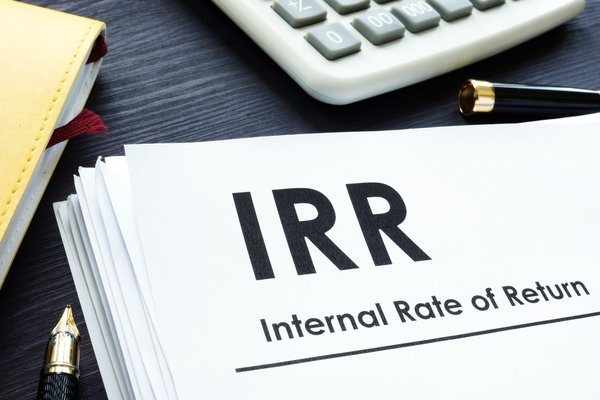Real estate due diligence is a crucial process that increases the probability of a successful investment. It helps give buyers confidence in the property they are acquiring by resolving potential issues before they close a purchase. It's a comprehensive property evaluation to help satisfy all legal requirements and reduce risk.
Here's a closer look at what due diligence means and how it works. We'll also provide a checklist to help real estate purchasers complete comprehensive due diligence of a property.

What is due diligence?
Real estate due diligence consists of the reasonable steps a prospective buyer takes to satisfy the legal requirements to purchase a property. It involves a comprehensive assessment of the property to determine all the potential assets and liabilities. The due diligence process helps give real estate investors the information needed to confidently close a transaction.
Real estate investors complete due diligence to uncover any potential issues with a deal before they close a transaction. The process digs deeper into the information provided by the seller to ensure they're not hiding any potentially damaging information (known or unknown) from the buyer. The due diligence process seeks to confirm the information provided by the seller.
If the information disclosed by the buyer is incorrect, or an unforeseen issue with the property arises during the due diligence process, the buyer has the opportunity to renegotiate with the seller or walk away from the deal. Conversely, if the due diligence process confirms all the information, the buyer can confidently close the transaction.
How does due diligence work?
Thorough commercial real estate due diligence is a multi-step process with two phases. The first phase is pre-offer or preliminary due diligence. Before an investor even makes an offer on a real estate investment, they should do some essential due diligence. The pre-offer due diligence process includes studying the marketplace, visiting the property, reviewing the seller disclosures, and analyzing the financials to make sure the deal meets an investor's return targets. The pre-offer due diligence helps real estate investors eliminate properties before committing too much time or money to a transaction.
Once an investor has gathered enough information on a property to give them the confidence to move forward, they can make an offer on a property. After the seller accepts the offer, the investor can begin the post-offer due diligence process by more fully exploring the property and its financials. Post-offer due diligence includes hiring a building inspector, checking zoning laws, researching the title, getting an appraisal, and obtaining financing.
If everything continues to check out with the property, the buyer can move to close the deal. However, if the due diligence process uncovers potentially damaging information about the property, the buyer has the right to renegotiate the transaction, and, in some circumstances, terminate the deal.
Real estate due diligence checklist
Real estate investors must thoroughly evaluate a property before closing a deal. There are several steps they should take before even submitting an offer. Here's a preliminary checklist of due diligence items to complete before submitting an offer on a property:
- Study the property's local submarket. Make sure it's in a good location by doing online research and talking to people who know the area, such as a local real estate agent.
- Do an online search of the property address and current seller. See if there's any history of crime, fraud, or other red flags with the property or seller.
- Review the property condition report. Pay close attention to the seller's disclosures to see if there are any glaring issues with the property.
- Review any provided environmental and energy reports.
- Analyze all government-issued documents related to the building, such as permits, certificates of occupancy, code violations, and notices.
- Review any recent capital expenditures and make a note of any deferred maintenance.
- Obtain a rent roll to see the current rental rates and remaining terms on existing leases. See if lease rates line up with the market, or if there's upside potential to bringing them up to current market rates.
- Evaluate property tax and utility bills from the property over the past few years.
- Review the property's profit and loss statement.
- Evaluate the existing debt on the property and compare the rate and terms to those currently available in the market.
- Complete a site visit of the property. Walk through any common space and see if you can enter some of the units. Consider taking trusted advisors on the property tour, such as a local commercial real estate agent and general contractor. Look for any potential deferred maintenance or structural issues. See if you can speak to current tenants, employees, and the property manager.
- Develop a list of maintenance and other capital improvements planned for the property after closing.
- Contact lenders and begin a preliminary underwriting process to see what terms they might offer on the property.
- Crunch the numbers to be sure the property can achieve your investment objective. Be sure to consider any known maintenance and capital expenses while accounting for some unexpected costs.
The preliminary due diligence process aims to identify issues with a property before a real estate investor commits too much time or money to a deal. They can walk away at any step in the pre-offer process if they grow uncomfortable with the property. Otherwise, the information gathered during the preliminary process can help them make a more informed offer.
The next step in the due diligence process is to submit an offer to the seller. Once accepted, the investor can move on to the post-offer due diligence process, also known as site underwriting due diligence. This stage takes a much deeper dive into the property and its financials. Here's a checklist of items to review and address when underwriting a property:
- Have a professional building inspector complete a thorough inspection of the property. Ensure they're allowed access to all units to provide a detailed inspection report that should uncover issues that require immediate attention. Look out for any deferred maintenance, structural issues, and the condition of the building's systems (plumbing, electrical, HVAC, and elevators). Make sure the building is up to current codes and complies with the Americans with Disabilities Act.
- Get an environmental assessment completed on the property. A professional environmental assessor can help determine any potential environmental hazards at the property that could lead to a costly cleanup in the future. Environmental issues such as asbestos, lead-based paint, hazardous materials disposed on the property, contaminated water, and leaks are expensive to mitigate and could make the property uninhabitable.
- Check for any prior flood damage and make sure that issue won't recur in the future. Review the floodplain and obtain flood insurance if necessary.
- Look for any current or prior mold damage. Ensure that the seller or a previous owner has remediated any issues and addressed the underlying cause.
- Make sure the building is properly permitted and zoned for the current usage. Obtain any easements, permits, and licenses needed to continue operating the property after closing. Many permits don't transfer over to the new owner; the pertinent government agency must reissue them to the new owner.
- Hire an appraiser to evaluate the property and review any past appraisals completed on the property.
- Put together a list of comparable properties. Include similar properties that recently sold in that submarket and the current rental rates for competing properties in the area. Complete a competitive analysis of the property to make sure it's in line with the current conditions within the submarket.
- Request additional documentation from the seller, including leases, service and maintenance contracts, and detailed financial statements. Seek to obtain three years of income and expense statements, audited financial statements, and real estate tax bills. Also, get a five-year history of leasing cost information and capital expenditures. Finally, get 18 months of aged receivables, current and next year's budget, and a list of any unfunded capital projects in progress.
- Have the seller provide a detailed list of any personal property they use for maintaining and operating the building that they won't include in the sale. Make sure to add the purchase of similar items to the budget.
- Conduct a thorough review of all leases and look for any unusual terms. Check out the payment history to see if any tenants are behind in their rent and might need to be evicted or are routinely late. Review the credit quality of tenants, length of occupancy, and correspondence.
- Obtain detailed information about any security deposits currently held. See if the current owner applied any security deposits to cover rent or repair damage caused by the tenant.
- Review all service and maintenance contracts. Contact service providers for their current assessment of the items they service to see if there's any maintenance needed. If you're not contractually obligated to keep the existing service providers, begin the competitive bidding process for potential new providers.
- If pest control isn't part of the current services provided to the property, hire a pest control professional to inspect the property. Make sure the seller has fixed any damage from pests (e.g., termites and rodents) and addressed the root cause.
- Conduct a thorough review of the building's other expenses. Analyze any current outstanding receivables and payables.
- Hire a title company to conduct a title search of the property. Obtain title insurance just in case a future claim emerges on the property.
- Work with a lender to obtain financing on the property. Lenders will typically require that you submit substantial documentation, including property reports, financial statements, and bank records.
- Get insurance quotes for the property, including from the agency currently insuring the building. Be sure to determine if the property will require flood insurance and obtain it if necessary.
- Obtain a survey of the property as well as the plat plan. Ensure the building or neighboring structures aren't encroaching on the wrong property. Also, obtain copies of any property construction blueprints and engineering plans.
- Complete a public records search of the property, the seller, and any key employees who will remain with the property.
- Evaluate any employees currently working at the property. Review their employment records and pay. Interview them to see if they'd like to continue working at the property and if they have any insights about the property.
- Get information on the current property management company, including the service agreement. Interview them about the property, seller, and existing tenants. Consider starting a competitive bidding process for a potentially lower-cost replacement.
- Make sure there aren't any tax liens on the property or other tax-related issues.
- Ensure that the tax assessor has the correct information on the property. Get an estimate for the annual real estate taxes due after the sale to be sure they won't increase significantly.
- Review the pro forma information, accounting for any changes in service rates, taxes, and rents to make sure the property continues to meet an investor's return hurdles.
- Complete a stress test on the property's financials. Analyze whether it can still generate enough income to meet its financial obligations if a significant unforeseen expense arises or a severe economic downturn impacts the rental collection rate.
If nothing material emerges during the due diligence process, the buyer can move forward and close the deal. However, if a significant issue arises, the buyer can request that the seller address the issue or seek to renegotiate the terms. If the seller isn't willing to fix the problem or adjust the terms, the purchaser can accept the current deal if it still meets their financial return hurdles or walk away from the transaction.
Related investing topics
The bottom line
Due diligence is the most important process in any real estate investment. It helps uncover potentially costly issues with the property that can affect an investor's returns. By leaving no stone unturned in a thorough review, an investor can close the purchase with confidence.



















